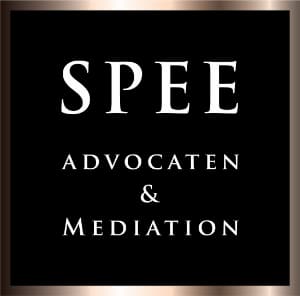Recently, the Arnhem-Leeuwarden Court of Appeal had to rule on whether a decision taken by a homeowners' association was legally valid. In an apartment complex, common costs had been divided equally among the owners from the moment the apartments were occupied. However, according to the deed of division, the owners had to contribute in proportion to the fractions allocated to them under the deed of division. The owners' association decided to amend the deed of division and bring it into line with practice.
What happened?
At the general meeting of the owners' association on 29 September 2020, a vote was taken on the decision to amend the deed of division so that the service costs would be divided equally among the apartment owners. Five members voted against the decision. The remaining members voted in favour of the decision. The owners' association determined that the proposal had been adopted with 86% of the votes.
A total of fifteen powers of attorney were issued for the purposes of the decisions to be taken at the general meeting of members. Three owners had given these powers of attorney to the board of the owners' association.
In the proceedings that followed before the court, it was ruled that the decision had been taken with the required majority of votes and that the decision was not voidable.
The court's ruling
However, the court concluded that the decision to amend the deed of division had not been taken by the required majority of votes, because the powers of attorney did not meet the applicable requirements.
On appeal, it was argued that the votes cast by power of attorney to the board of the owners' association could not be counted. The powers of attorney had not been issued to a (legal) person, but to a body of a legal person (the board of the owners' association), so that the votes cast by those powers of attorney were not legally valid. If those votes were disregarded, the required four-fifths majority of votes had not been achieved, so that the decision had not been taken or was null and void.
The court of appeal ruled as follows:
"Pursuant to Section 3:60 of the Dutch Civil Code, a power of attorney is the authority granted by a principal to another person to perform legal acts on his behalf. Legal acts – such as the casting of a vote by an apartment owner on the basis of the division regulations – can only be performed by natural persons (Article 3:32(1) of the Civil Code) or legal persons (Article 2:5 of the Civil Code). The board of the owners' association is not a legal entity or a natural person, but an organ of a legal entity. The votes cast with the three powers of attorney granted to the board of the owners' association cannot therefore be counted as votes cast in favour of the decision."
The owners' association further argued that the powers of attorney in this case had nevertheless been granted legal validity to the board because the 1992 model regulations provided for this possibility. However, according to the court, the assertion that the 1992 model regulations allow the granting of powers of attorney to the board was not substantiated. The 1992 model regulations do not contain such a provision, and the owners' association did not refer to such a provision when asked.
The owners' association also argued that, based on the provisions of Sections 5:131 and 5:126 of the Dutch Civil Code, it was not clear why a power of attorney could not be granted to the board. The court of appeal found the reference to those provisions incomprehensible without further explanation. The fact that the owners' association manages the community (Section 5:126(1) of the Dutch Civil Code) and, within the limits of its authority, can represent the joint apartment owners in and out of court (Section 5:126(5) of the Dutch Civil Code), that the owners' association is (in turn) represented by the board (Section 5:131(1) of the Dutch Civil Code) and that the meeting may issue instructions to the board in that context (Section 5:131(5) of the Dutch Civil Code) are legal provisions of an association law nature. It does not follow from this that the board can perform legal acts on the basis of a power of attorney agreement with an individual apartment owner.
Conclusion
The court therefore concluded that no valid votes could be cast on the basis of the powers of attorney granted to the board of the owners' association. The votes cast in this way could therefore not be counted when determining the number of votes for or against the decision. The decision was therefore not taken with the required majority of four-fifths of the votes cast, so that the decision was null and void (Section 5:124(2) of the Dutch Civil Code in conjunction with Section 2:14(1) of the Dutch Civil Code). In addition, the owners' association was ordered to pay the costs of the proceedings.
As an owners' association, you should therefore always check carefully whether the powers of attorney cast are legally valid in order to prevent a decision from being overturned due to the invalidity of the votes.
Would you like to know more or do you have questions about your position as flat owner? If so, please feel free to contact one of our lawyers without any obligation. We will be happy to assist you!
